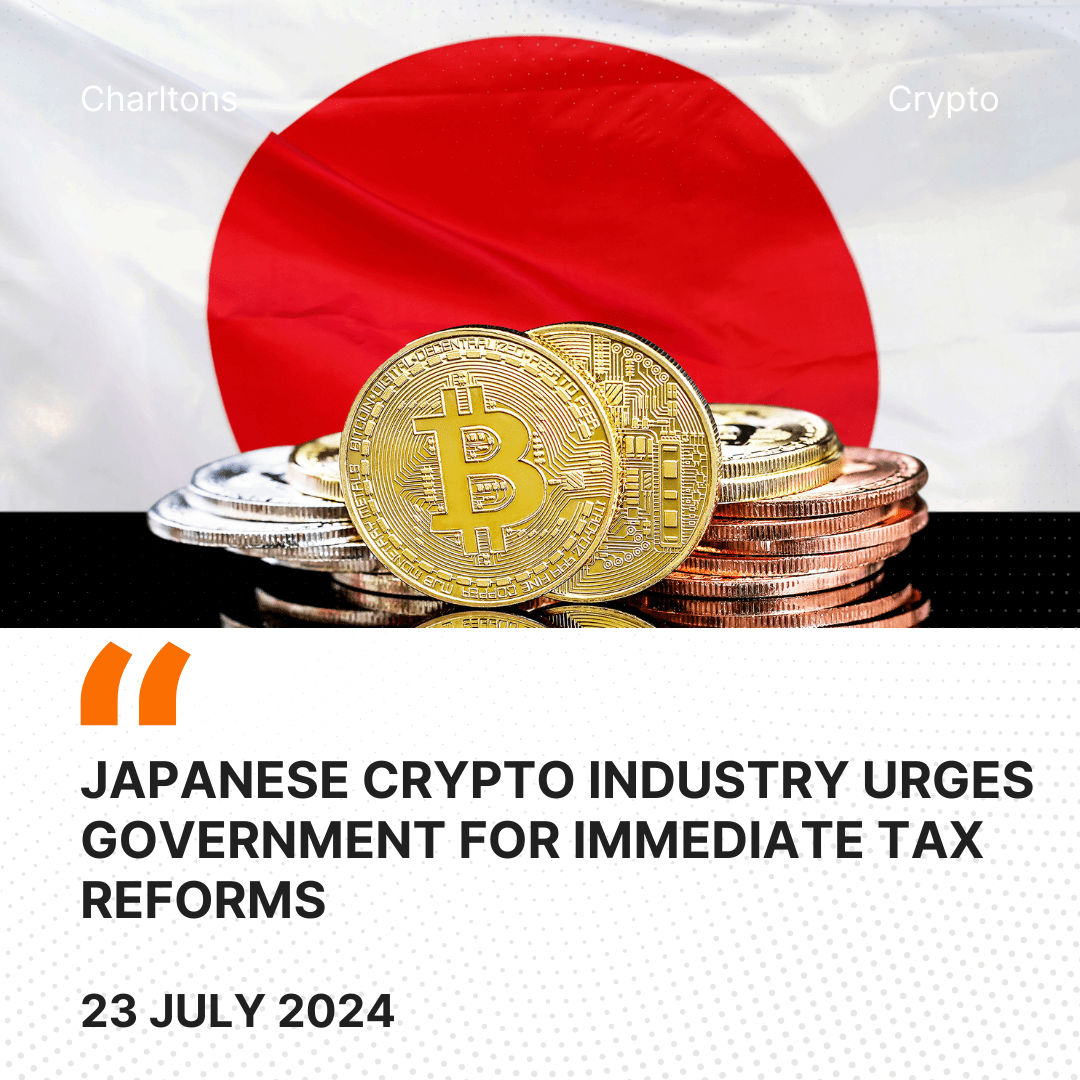
On July 19, 2024, the Japan Blockchain Association (JBA), an influential body representing leading Japanese crypto exchanges and blockchain companies, formally petitioned the government to implement significant tax reforms related to cryptocurrencies. The JBA aims for these changes to be in place ahead of the Financial Year 2025.
The JBA emphasized that Japan’s high tax rates on cryptocurrency profits are stifling citizens’ ability to accumulate valuable digital assets. The association has urged Tokyo to align the tax rates on crypto profits with those applied to conventional financial assets like stock exchange-listed stocks.
The JBA, which includes top blockchain firms and crypto projects such as bitFlyer, highlighted the urgency of reforming the nation’s stringent tax laws. The organization has been vocal about the need to introduce new tax measures, pointing out that the current rules for crypto-related transactions are excessively complex and discourage investment. Under existing Japanese law, traders must declare token-derived profits as “other income” on their tax returns, subjecting high earners to a maximum tax rate of 55%. This is significantly higher than the flat-rate capital gains taxes applied in many other developed countries, making Japan less attractive for crypto investors.
The JBA noted that Japan’s current tax laws adversely affect companies issuing crypto assets and web3 startups. The association warned that without reform, Japan risks losing its competitive edge in the global web3 sector, with talented individuals and innovative startups likely to relocate to countries with more favorable regulations. To address these issues, the JBA proposed several key reforms, including implementing separate self-assessment tax systems for crypto, eliminating its inclusion in the “other income” section, introducing a flat 20% tax rate on crypto profits, allowing traders to carry forward losses for three years to offset future crypto-related income, abolishing taxes on crypto-to-crypto transactions, creating tax-free or tax-deductible crypto donation systems, and considering future reforms for crypto derivative transaction-related tax rules.
Expressing the urgency of the matter, the JBA wrote on X (formerly Twitter) that tax reform for cryptocurrencies is critical to allowing the web3 sector to thrive and drive future economic growth in Japan. Yuzo Kano, the head of the JBA and CEO of bitFlyer, emphasized the potential of web3 to significantly contribute to Japan’s medium- to long-term economic growth and international competitiveness.
Japan has long been recognized for its forward-thinking approach to technology and finance. By addressing the current tax challenges faced by the crypto industry, Japan aims to foster a more conducive environment for innovation and investment. These proposed reforms reflect Japan’s commitment to remaining at the forefront of the digital asset revolution, ensuring that it continues to be a leading hub for blockchain and cryptocurrency development. The JBA’s proactive stance highlights the importance of regulatory adaptation in maintaining a competitive and vibrant financial ecosystem.





